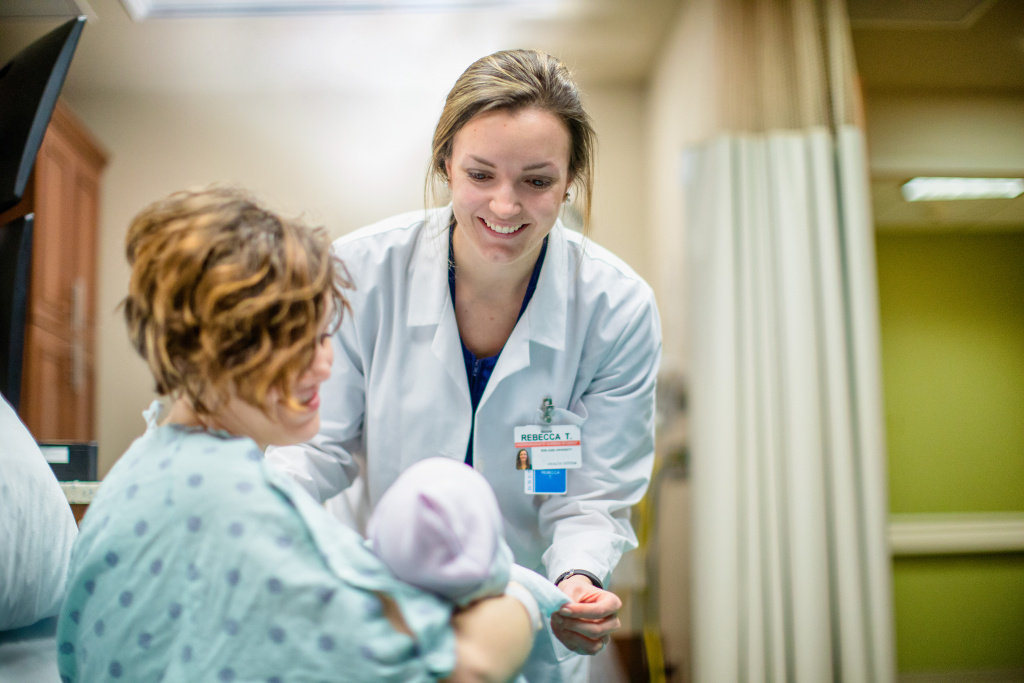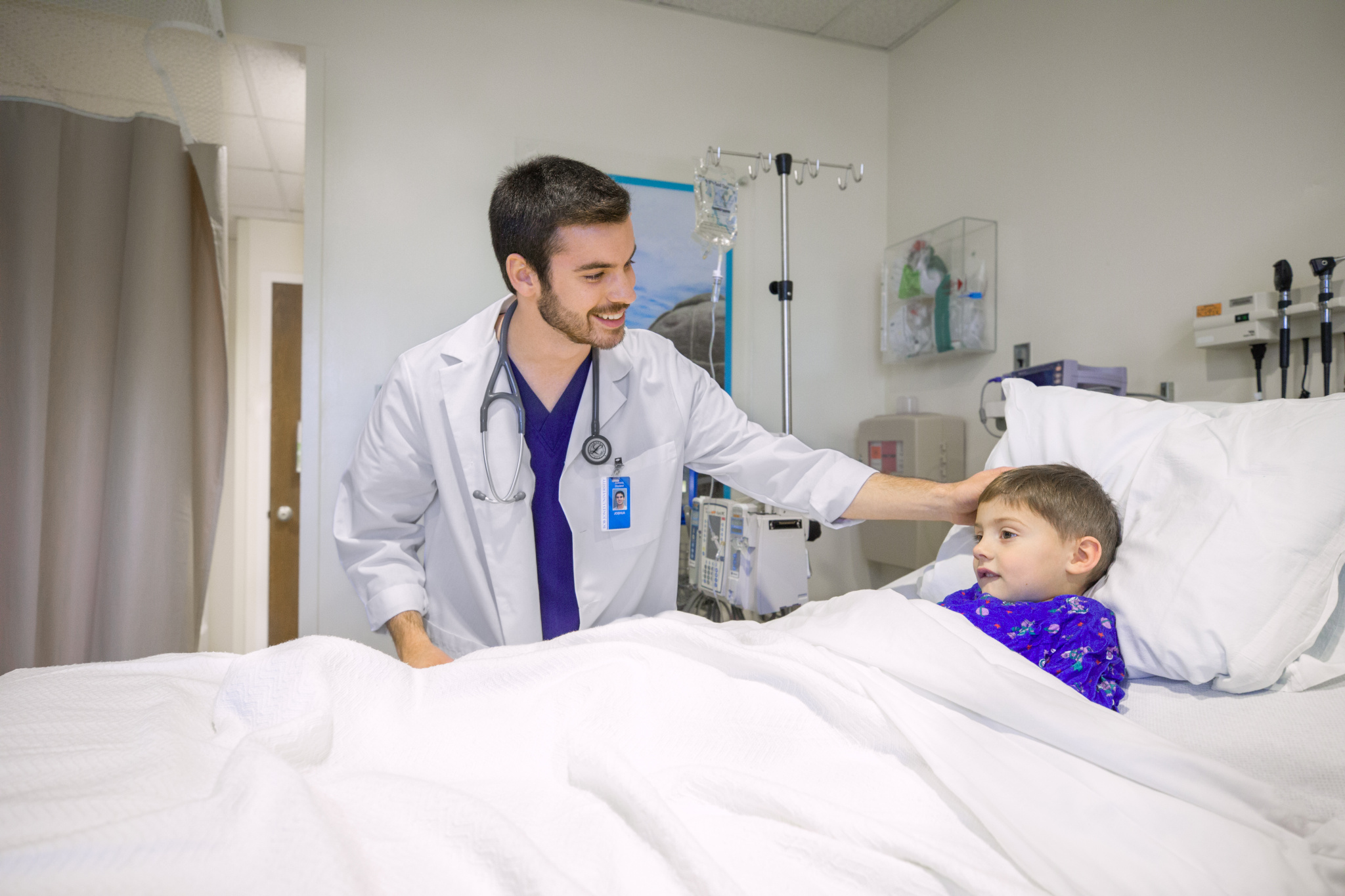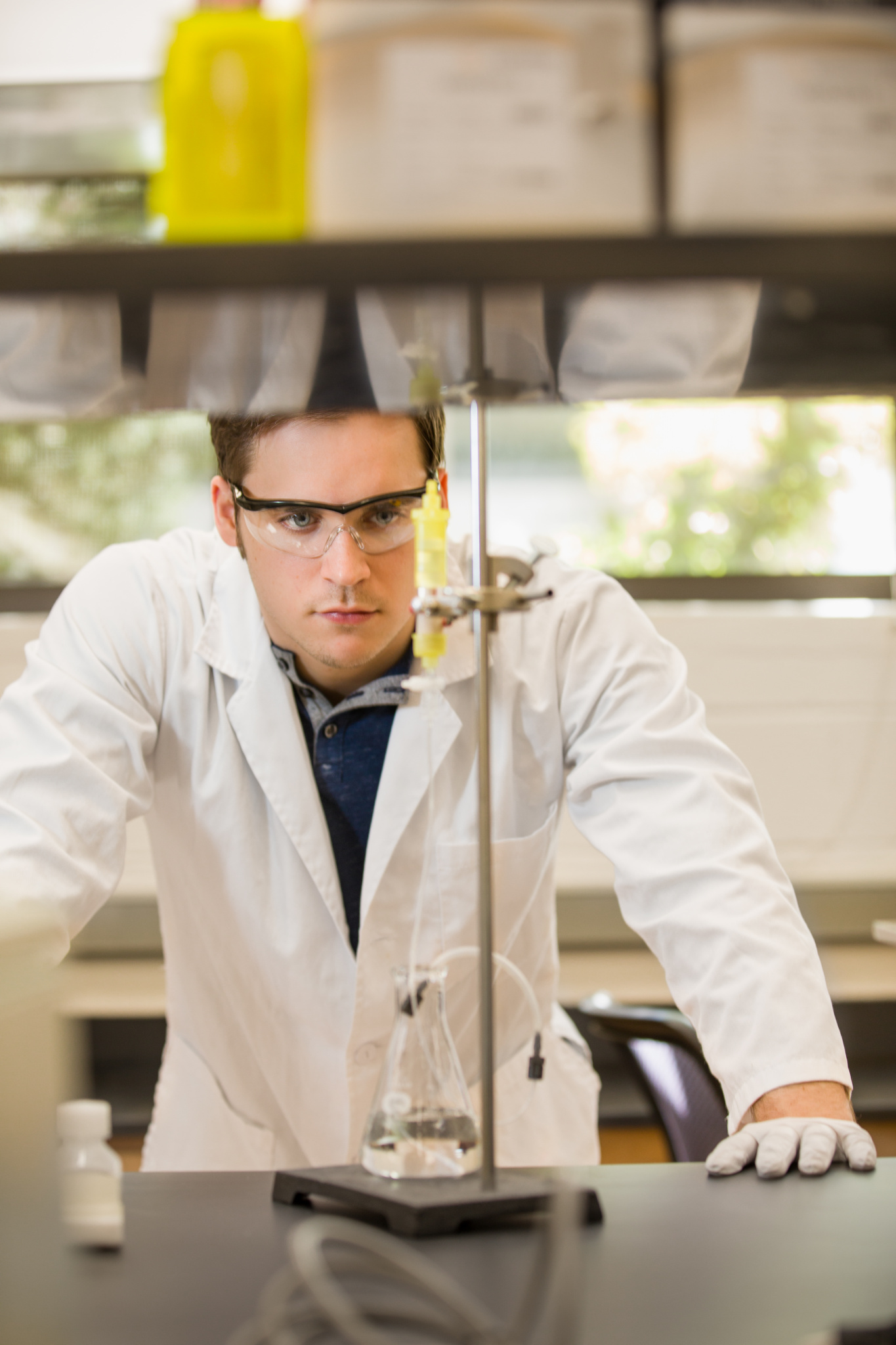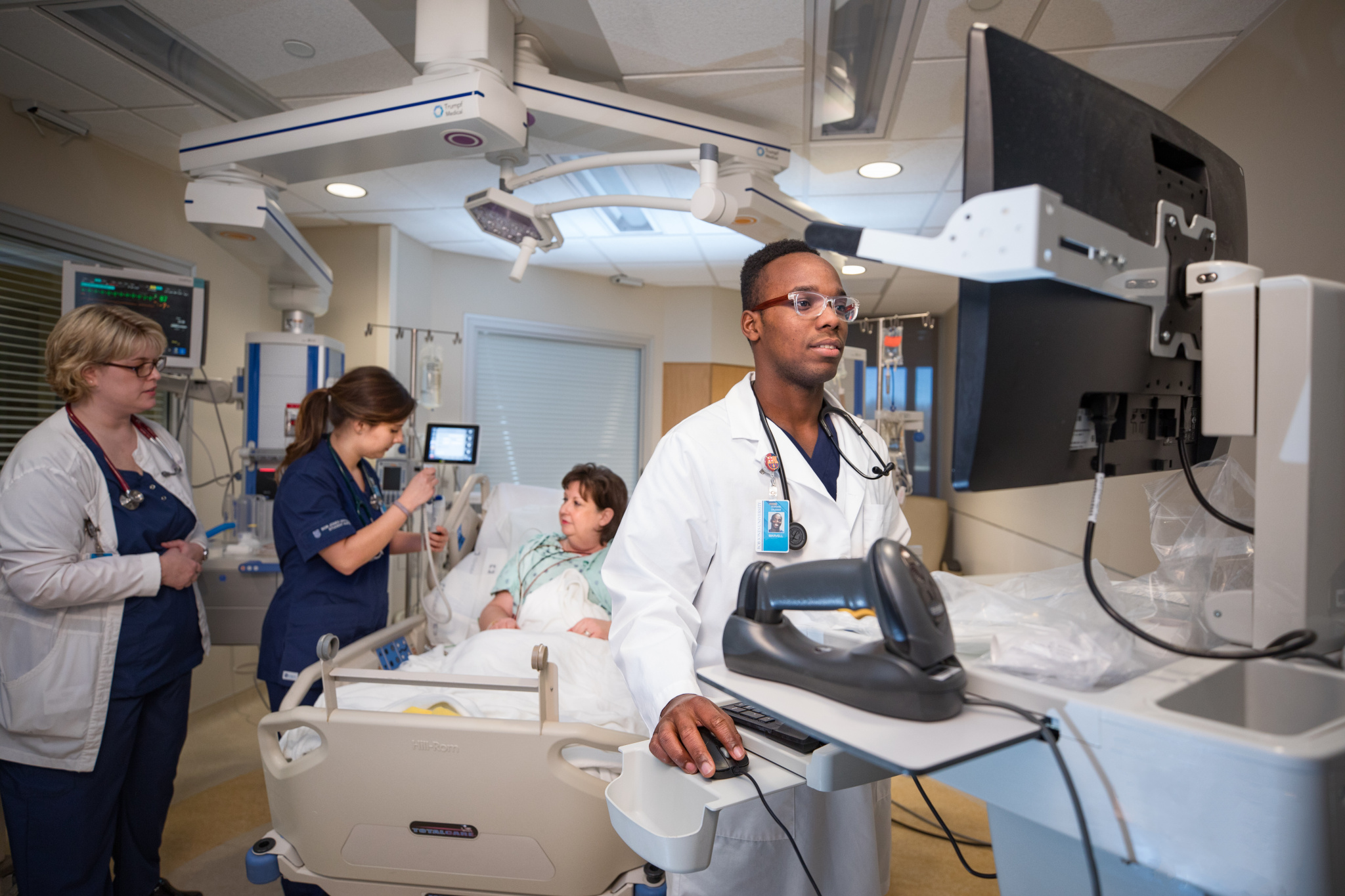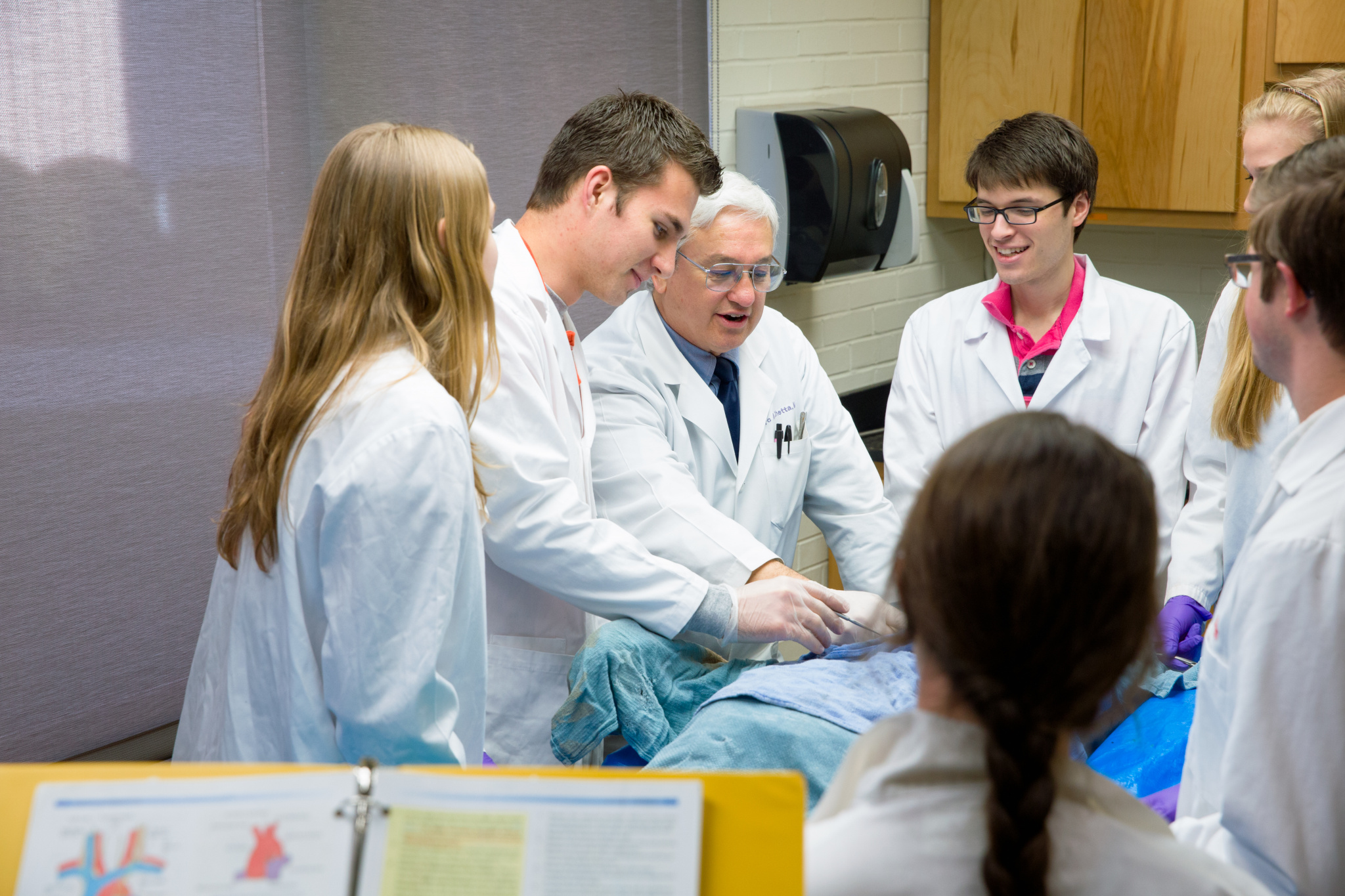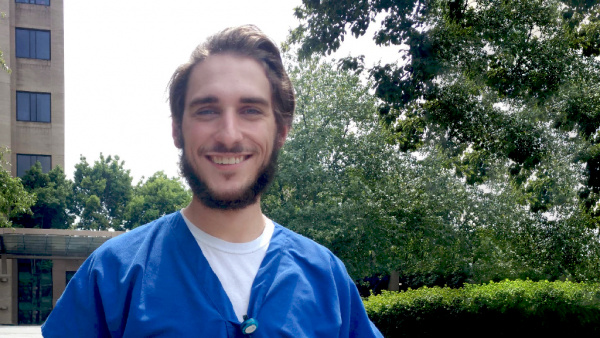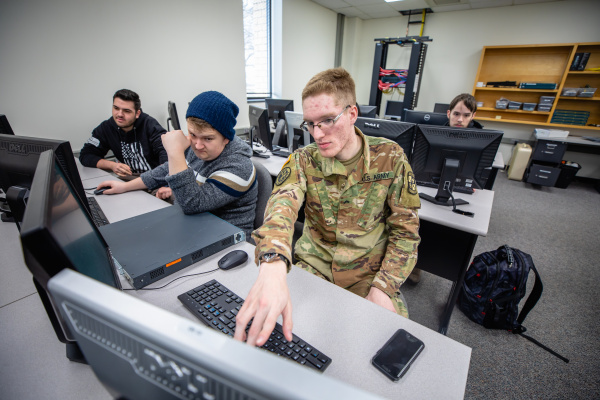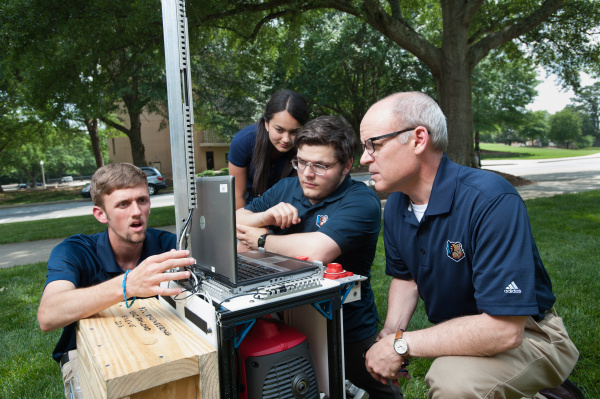Every doctor and dentist begins as a student with a desire to help. That desire is the chief motivator as they travel the long path of a bachelor’s degree, medical school and residency. As Dr. Marc Chetta, an advisor for the BJU premed/predent program, said, “There are so many people in the world that are sick and need help. These students know who they want to help, and that’s their motivation.”
Through hands-on experience in the medical field, BJU’s premed/predent program prepares students to enter medical or dental school with a biblical foundation.
How Can I Prepare for This Program?
High School Classes
The premed/predent program has an emphasis on science. By the time you graduate, you will have taken seven classes and labs in biology, six in chemistry, and two in physics. To prepare, Chetta recommends taking as many high school science classes as you can.
“Any kind of biology, anatomy, physics, chemistry or biology classes would be good. Any of those courses will give (students) a basic understanding of these subjects which will be helpful down the road,” he said. “Science classes will give students a real understanding of what medicine is actually like.”
Dual Credit
Because this program focuses on preparing the next generation of doctors and dentists, it only offers science electives. However, one way to free some credits for additional electives is to take dual credit classes during high school.
Taking a dual credit class can be especially helpful for premed/predent students as most of your first year will consist of core classes. By taking one or two dual credit classes, you can get those core classes out of the way to give you more space to dive deeper into your degree or to take a few electives.
Volunteer at Your Local Hospital
One of the best ways to prepare yourself for a future career is to immerse yourself in the work environment. Many hospitals offer volunteer opportunities for high school students that don’t require experience.
“The absolute best thing for (students) to do would be to volunteer at their local hospital or shadow their local physician to see if that’s the kind of life they want to lead,” Chetta said. “They should definitely make sure that they know what medicine is all about because it’s not all glorious like you see on TV.”
What Classes Will I Take?
As a freshman, premed/predent students take mostly core classes with two introductory biology courses. “Your first year will be heavy in the liberal arts core. We did that on purpose so the student will get a strong cultural and biblical foundation before diving too deep into their major,” Chetta said.
General Biology I is the first required biology class. The goal of the class is to give you an overview of genetics, cells and the philosophy of science. The sequel of the class is General Biology II, which you take during your second semester.
“(In that class) we teach the students how to think critically. … We want aspiring doctors and dentists to know how to think, how to take facts and apply them,” Chetta said. “General Biology I and General Biology II are equipped with labs, and they’re very focused on higher critical skills.”
Beginning with your sophomore year, you can take classes that are specific to your major, such as Essentials of Cell Biology, Biostatistics and General Chemistry.
Throughout the rest of your program, your classes will focus on giving you an in-depth understanding of subjects including physiology, genetics, anatomy, sociology and biomedical ethics.
“There’s one thing all of our classes want to get across. You learn a lot of facts in science, but we want students to ask themselves, ‘Why?’ If you can ask and answer the question of why something happens, then facts become easier,” Chetta said.
Which Classrooms Will I Use?
The laboratories used by the premed/predent students are one of the most interesting aspects of this program. Every science course you take requires a lab. “All of our science courses have really cool rooms because they have labs where you’re actually doing real, benchtop, authentic experiments,” Chetta said.
The physiology lab has medical equipment used to perform a variety of tests — including EKG, EEG, spirometry and blood analysis. In the cancer research lab, students participate in real-world studies on cancer and its treatment.
“In chemistry, organic chemistry and biochemistry, you have a lab where you’re actually making things,” Chetta said. “Then you have labs where you’re mixing chemicals or maybe you’re dissecting a human cadaver in the cadaver lab.” Every lab you participate in will give you real-life experience in the medical field.
Do I Have to Take Any Graduate School Entry Exams?
Every student is required to take the Medical College Admission Test (MCAT) in order to apply to medical school. BJU’s premed/predent students have an average score in the 92nd percentile. The national average score falls just above the 50th percentile.
Chetta believes students have a high success rate due to the preparation they had along the way. “All of our classes are preparing the students for the MCAT. Students come to me all the time and ask me how they can prepare for the MCAT, and I tell them that if they do well in the courses that they’re taking right now, they will do well on the MCAT,” he said.
Will I Have An Internship?
During your senior year, you will apply the skills you have learned in the program through a medical internship. Premed and predent students intern in one of Prisma Health System’s multiple campuses for 40 hours each week. During the internship, students shadow doctors, observe dentists and attend to patients.
“There’s nothing more helpful than actually being in a medical environment and getting that real-life experience, seeing real people with real problems and trying to figure out the best solution. Our medical internship is more hours than most, but it’s worth it,” Chetta said.
What Faculty Will I Meet?
Just like the students, the premed/predent faculty began with a desire to help people battling chronic illnesses, oral health conditions and other diseases.
Through their years of experience, they have been able to participate in many mission trips, do cancer research and run private practices. “(Our professors) have years of teaching experience, laboratory experience and real-life experience. They’re taking all of that useful experience and applying it to their teaching which the students can benefit from,” Chetta said.
While every professor has an impressive background, one of the highlights is division chair, Dr. Amy Hicks. She has worked in several cancer research labs and co-founded a biomedical research networking association. In addition to teaching, Hicks also leads a mission trip every summer.
See Also: Dr. Amy Hicks: From Researcher to Teacher
As a part of the program, you will have one of two advisors, Chetta or Dr. Amy Tuck. While Chetta has over 30 years of experience in general medicine and emergency medicine, Tuck has worked on several research projects to combat leukemia. She has been granted two patents for her work in ultraviolet radiation therapy.
“They bring a lot to the table, a lot of real-life experience that enhances what (students) are learning and makes it more authentic,” Chetta said.
What Comes Next?
As you finish your medical internship, take the MCAT and prepare for medical school, heed the words of Dr. Chetta: “Be committed to the process. You have to have a 12-year view. You can’t have a one-year or a very short-sighted view. As long as you are dedicated to what you’re doing, the years will pass in no time.”
For more information or to apply online, visit BJU’s premed/predent program page.


